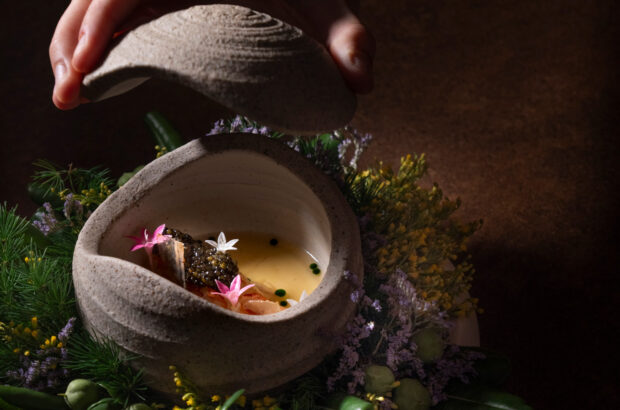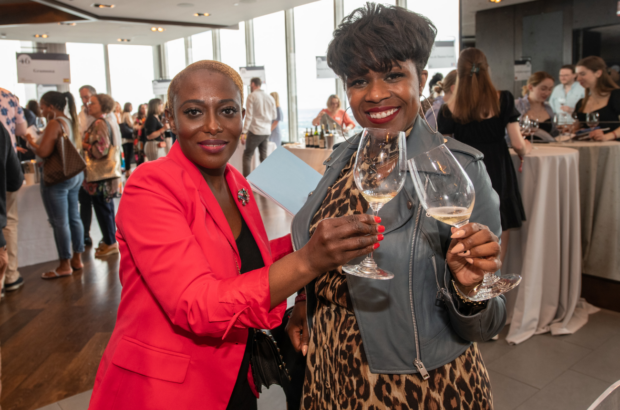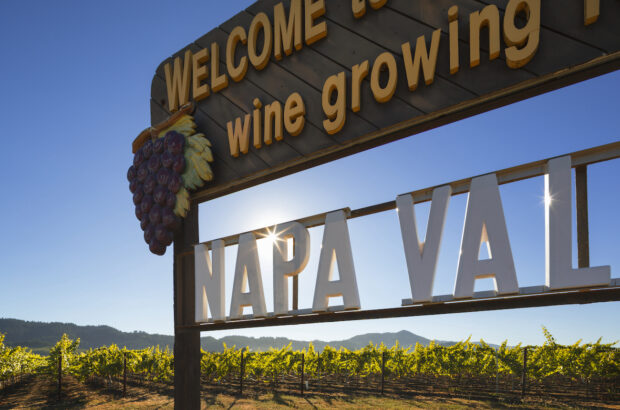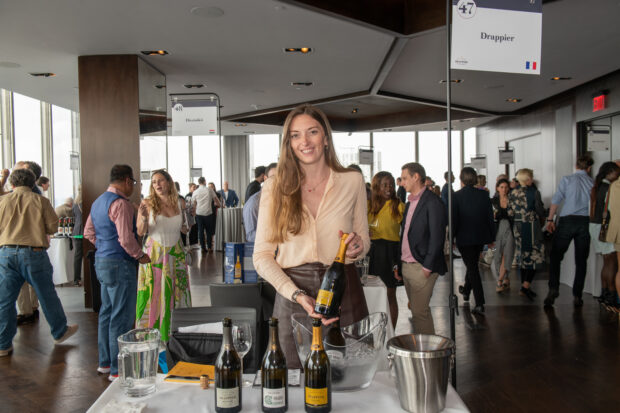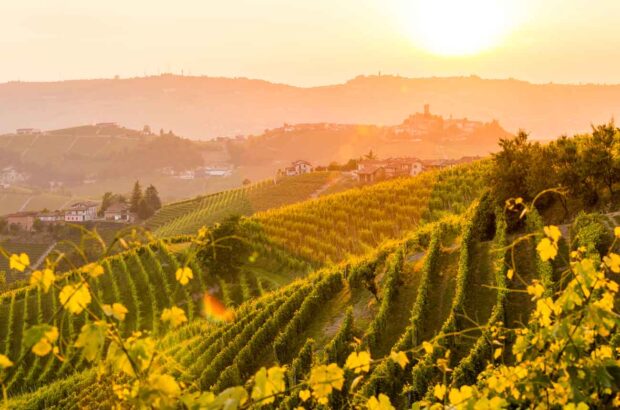Jean-Michel Cazes' boundless energy has helped him run châteaux, hotels, a négociant house and much more besides. Stephen Brook talks to Decanter's Man of the Year
It was too much to expect that Jean-Michel Cazes, on reaching retirement age in 2000, should wave goodbye to the world of Bordeaux wine and head for the beach. With prodigious energy he had held down a number of jobs right through the 1990s. He was administrator of the estates belonging to AXA Millésimes, running properties as diverse as Pichon-Longueville, Cantenac-Brown and Suduiraut in Bordeaux, Quinta do Noval in the Douro and a large estate in Tokaj. He also managed the family properties: Lynch-Bages, of course, but also Ormes de Pez in St-Estèphe, and Villa Bel-Air in the Graves. He also ran a small négociant house called Michel Lynch.
https://www.decanter.com/learn/advice/tokaji-sweetness-measured-aszu-430218/
As a sideline, he converted Château Cordeillan-Bages, a tiny Pauillac property, into a luxury hotel and restaurant, now with two Michelin stars. And in his spare time he was Grand Maître of the Commander de Bontemps, a promotional organisation requiring its members to wear medieval robes and perform arcane ceremonies. He also ran the successful insurance agency built up by his father André in Pauillac.
We meet at the famous Bordeaux restaurant Le Chapon Fin. He tut-tuts as he walks in the door at lunchtime and sees the restaurant less than full. He takes a personal interest in the place, since he recently bought it. Under his ownership the décor has been smartened up a bit, but it remains a haven of gastronomic rigour and complexity. He is looking more relaxed than I’ve seen him for many years. He has passed the AXA-Millésimes baton smoothly to Christian Seely, and is no longer involved in the insurance agency. So he has time on his hands.
To fill it, he acquired last year two properties in the increasingly fashionable La Livinière appellation in the Minervois. A winery is being renovated and sections of the vineyards replanted.
‘The region has tremendous potential,’ he says. ‘It hasn’t made the impression it should because the growers don’t earn enough to invest more in their vineyards and wineries. We are investing in the region, and will supplement our own grape production by purchasing raw materials from other properties.’
The long-term goal is to produce a wine identified by the name of the domaine. ‘The present name is Vipur, which in English sounds like a snake. Not, I think, the ideal name for a wine, so we will be thinking of a new one.’ At the same time he is fine-tuning his Bordeaux operations. In Macau in the Médoc he has constructed a new vinification centre for Michel Lynch, which produces a range of mostly unoaked Bordeaux wines, including a new réserve. For some years he has run a small wine school, and in 2002 moved its headquarters into the heart of Bordeaux, which he believes will draw in more students than the former school in Pauillac.
TOURIST TRADE
If Jean-Michel Cazes were merely an owner of various châteaux, he would not stand out as being remarkable in Bordeaux. What makes him different is his urgent belief that Bordeaux can never rest on its laurels, but needs to communicate with those who consume its wines. He has always been keen to encourage visitors to Lynch-Bages (and Pichon-Longueville, during the time he ran AXA-Millésimes), where a trained team offers organised tours and tastings to some 10,000 visitors a year.
I point out, as we tuck into our salad of lobster and ceps, that Bordeaux has never been welcoming to the thousands of wine tourists who flood in each summer. In contrast, wineries in California or Australia are only too keen to attract visitors, lure them into a tasting room, and allow them to buy a bottle to drink with their picnic in the winery grounds. This is inconceivable in Bordeaux.
‘That’s true, but Bordeaux is not Napa Valley,’ he replies. ‘We don’t have the kind of climate that attracts tourists for more than a short season. Napa has San Francisco on its doorstep, but Bordeaux is a fairly small city. And historically, there was no need for châteaux to open their doors to the public, as they sold all their wine to the négociants.
‘This may explain why Bordeaux estates do not handle visitors well, but it’s not a justification. I am not the only proprietor happy, even eager, to receive visitors. The situation is better now than it was 10 or 20 years ago, but we must do more. We hope that those who visit us leave with a positive impression. They will understand our wine better and – who knows? – buy it and talk about it in the future.’
The desire to see Bordeaux in international terms is also behind the role of Jean-Michel Cazes as Grand Maître of the Commanderie. Those fortunate enough to attend such lavish shindigs as the Fête des Fleurs during the trade fair Vinexpo can see friends of Bordeaux being inducted into the organisation with much pomp, culminating in hours of feasting.
‘I’m involved because my father was, so I grew up with it. But it’s about more than ceremonies and dinners. The Commanderie primarily exists to promote Bordeaux. But it also brings together the proprietors and the négociants, who in the past were often at loggerheads. In the past, château owners sat in their drawing rooms and could afford to ignore what was going on around them. The Commanderie brings them together and gives them a forum in which they can talk about the Bordeaux wine business.
‘The Commanderie also organises tastings, to educate our future consumers. We do this for the French Grandes Ecoles, the elite colleges that train our civil servants, academics and business leaders. And we’re planning to do the same at Oxford and Cambridge, Princeton and Harvard.’
Cazes, in short, has always believed Bordeaux must reach out to the world around it. It would be a grave mistake, he implies, to imagine that the world will keep coming to Bordeaux out of sheer admiration for the quality of its wines. During his years at the head of AXA-Millésimes he welcomed top estates in Hungary and Portugal into the fold. Now he is independent once more, he is also looking outside Bordeaux, both with his property in the Minervois and initiating joint ventures outside France that he is not yet able to discuss in detail.
I ask him where in the world he would like to own 100 hectares of vineyard land. ‘It would be wonderful to make wine in the Douro. But it would be a logistical nightmare, and labour would be almost impossible to find. I would love to do something in Australia. I’m a Cabernet man, so I’d go for Coonawarra or Margaret River.’
BACK AT THE RANCH
Not that he is neglecting his native Pauillac. Lynch-Bages is next to the drab hamlet of Bages. Nobody goes there because there is nothing to see. ‘I am planning to change that. Later this year we are opening a bakery in Bages, which will supply my hotel and restaurants. So there will be a bakery there, and a butcher’s. In the future Bages will be a tiny wine and food village, which we hope will draw more visitors.’
Tireless and full of ideas, Jean-Michel Cazes is Decanter’s 2003 Man of the Year not just because he makes superb wine. Over the years he has made a difference to Bordeaux. He is an eager communicator, free of the snobbery that can make Bordeaux tiresome and intimidating. Jean-Michel Cazes has shown that it is possible to combine running a major corporate offshoot with an unwavering regard not just for quality but for such issues as winery design that literally affect the Bordeaux landscape. He is also exceptionally kind, and thousands of wine lovers, professional and amateur, are in his debt.



